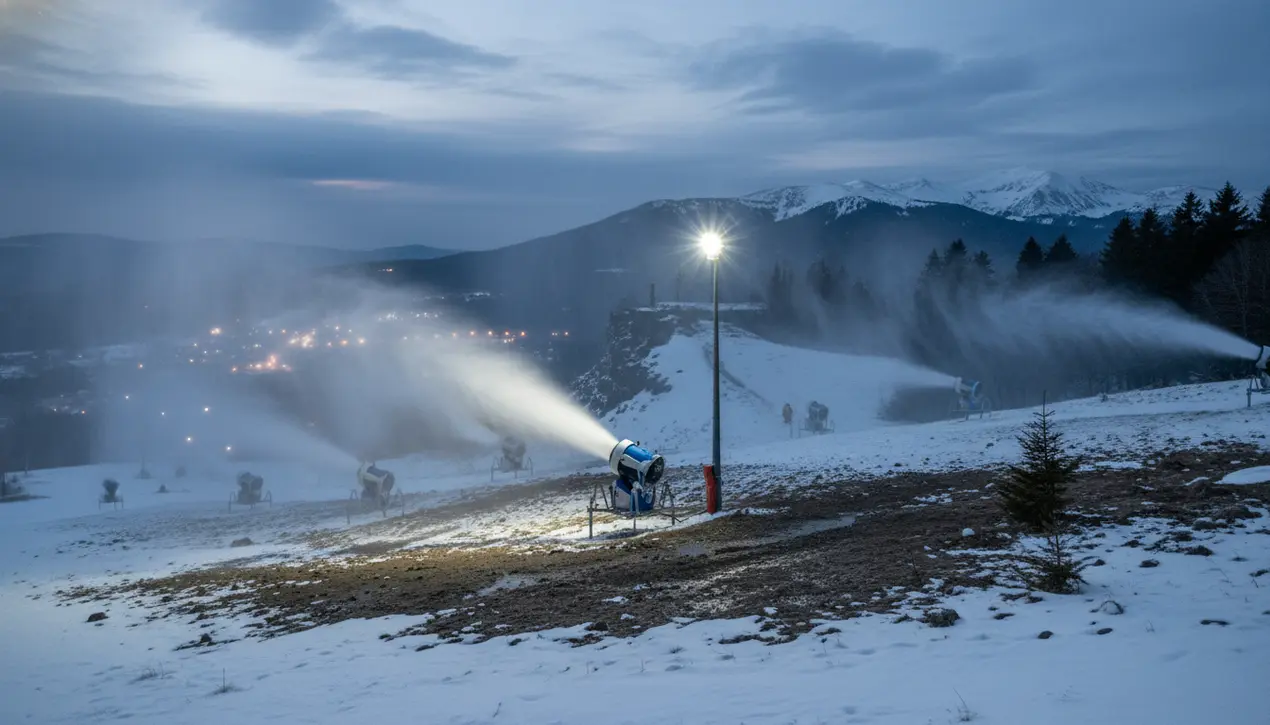
Scienceclimate scienceClimate Change
French Ski Resort Begins Early Artificial Snowmaking for Winter.
RA
Rachel Adams
2 hours ago7 min read1 comments
High in the Auvergne region of France, the whir of snow cannons has begun its annual chorus, but this year their song started weeks ahead of schedule, a stark and telling overture to a winter season under siege. This isn't mere logistical preparation; it is a desperate climate adaptation, a declaration of war against the inexorable creep of warmer temperatures that have rendered natural snowfall an increasingly unreliable partner for the alpine tourism industry.The resort's decision to fire up its energy-intensive snowmaking systems so early is a direct response to the traumatic winter of 2022-2023, one of the worst on record for European ski areas, where slopes lay bare and brown well into December, causing catastrophic financial losses and forcing a painful reckoning. While the immediate goal is to lay down a foundational 'base layer' of snow—a man-made glacier upon which the season's economy will be built—the environmental paradox is profound.The very process designed to save these mountain communities consumes vast quantities of water and electricity, often drawn from the local reservoirs and grids, thereby contributing to the greenhouse gas emissions that exacerbate the warming threatening the industry's very existence. Local ecologists point to the disruption of fragile high-altitude ecosystems, where the altered melt cycles of artificial snow can impact soil composition and native flora.Yet, from the perspective of the resort operators and the small businesses whose livelihoods are inextricably linked to the ski trade, this is not a choice but a necessity—a multi-million-euro insurance policy against a snowless Christmas. The situation in the Auvergne is a microcosm of a continental crisis, from the receding glaciers of the Alps to the shuttered lower-elevation resorts in the Pyrenees, forcing a painful conversation about the long-term sustainability of winter sports. The reliance on techno-fixes like artificial snowmaking, while a critical short-term lifeline, ultimately feels like applying a bandage to a wound that requires major surgery, pushing the industry toward a future where its survival is guaranteed only by an ever-increasing input of energy and capital, a high-stakes gamble against the forces of a changing planet.
#featured
#ski resort
#artificial snow
#France
#Auvergne
#winter season
#climate change
#environmental concerns
Stay Informed. Act Smarter.
Get weekly highlights, major headlines, and expert insights — then put your knowledge to work in our live prediction markets.
Comments
Loading comments...
© 2025 Outpoll Service LTD. All rights reserved.